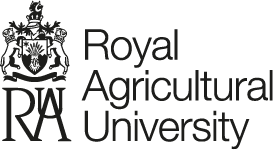HENNOVATION: Learnings from Promoting Practice-Led Multi-Actor Innovation Networks to Address Complex Animal Welfare Challenges within the Laying Hen Industry
Van Dijk, Lisa, Buller, H, Blokhuis, H, Van Niekerk, T, Voslarova, E, Manteca, X, Weeks, C and Main, David C J (2019) HENNOVATION: Learnings from Promoting Practice-Led Multi-Actor Innovation Networks to Address Complex Animal Welfare Challenges within the Laying Hen Industry. Animals, 9 (1). p. 24. ISSN 2076-2615
|
Text
animals-09-00024-v2.pdf - Published Version Available under License Creative Commons Attribution. Download (607kB) | Preview |
Abstract
The Hennovation project, an EU H2020 funded thematic network, aimed to explore the potential value of practice-led multi-actor innovation networks within the laying hen industry. The project proposed that husbandry solutions can be practice-led and effectively supported to achieve durable gains in sustainability and animal welfare. It encouraged a move away from the traditional model of science providing solutions for practice, towards a collaborative approach where expertise from science and practice were equally valued. During the 32-month project, the team facilitated 19 multi-actor networks in five countries through six critical steps in the innovation process: problem identification, generation of ideas, planning, small scale trials, implementation and sharing with others. The networks included farmers, processors, veterinarians, technical advisors, market representatives and scientists. The interaction between the farmers and the other network actors, including scientists, was essential for farmer innovation. New relationships emerged between the scientists and farmers, based on experimental learning and the co-production of knowledge for improving laying hen welfare. The project demonstrated that a practice-led approach can be a major stimulus for innovation with several networks generating novel ideas and testing them in their commercial context. The Hennovation innovation networks not only contributed to bridging the science-practice gap by application of existing scientific solutions in practice but more so by jointly finding new solutions. Successful multi-actor, practice-led innovation networks appeared to depend upon the following key factors: active participation from relevant actors, professional facilitation, moderate resource support and access to relevant expertise. Farmers and processors involved in the project were often very enthusiastic about the approach, committing significant time to the network’s activities. It is suggested that the agricultural research community and funding agencies should place greater value on practice-led multi-actor innovation networks alongside technology and advisor focused initiatives to improve animal welfare and embed best practices.
| Item Type: | Article |
|---|---|
| Keywords: | practice-led, innovation, networks, laying hen, industry |
| Divisions: | Agriculture, Food and Environment |
| Depositing User: | Users 4 not found. |
| Date Deposited: | 15 Jan 2019 08:17 |
| Last Modified: | 20 Oct 2022 14:28 |
| URI: | https://rau.repository.guildhe.ac.uk/id/eprint/16093 |
Actions (login required)
 |
Edit Item |

